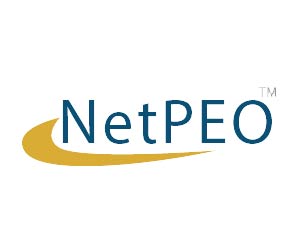Professional employer organizations (PEOs) help small businesses address HR challenges as they grow. These organizations can act as supplements or complete replacements to a business’s HR infrastructure, either assisting with or completely managing functions like payroll, benefits administration, and risk management.
A Certified PEO (CPEO) is a type of PEO that has met strict requirements set by the IRS. PEOs that have joined this voluntary program must maintain the standards set out by the IRS and take on certain tax liabilities for their clients. PEO brokers, like NetPEO, work to connect businesses like yours with certified PEOs they can trust.
What It Means to Be a Certified PEO
When a PEO is certified, it means they opted to partake in an accreditation process designed to verify that they operate ethically and legally. All certified PEOs have undergone rigorous financial audits and background checks to ensure they are of the highest integrity.
Once a PEO is certified, they become legally responsible for their client’s employment taxes. That means they’ll be held accountable if any mistakes are made that result in penalties or lawsuits. This can give PEO clients peace of mind, knowing they won’t have to take a loss for any mistakes made by their provider.
How Partnering With a Certified PEO Works
When you partner with a certified PEO you enter a relationship known as “co-employment.” Under co-employment, you’ll retain control over your worker’s daily tasks and the organizational structure of your business. In addition, your executive team will continue to perform the roles they were assigned when they joined the company.
Your certified PEO will take on all the duties assigned to them in your co-employment contract. They’ll also be able to provide comprehensive benefits to your workers, handle payroll tasks, and perform tax filings.
Certified PEO Benefits
The IRS certification program clarifies certain ambiguities in the tax code for both CPEOs and their clients, while also providing several benefits to both parties. Some of the benefits you can enjoy with a Certified PEO include:
- Employment taxes. Your CPEO will be able to submit your employment taxes to the IRS under its own Employer Identification Number (EIN)
- Tax credits. Despite getting the benefits of a large employee base for being a client of a PEO (e.g., health insurance group discount rates), you may continue to claim small business tax credits.
- Lower withholdings. If you leave your CPEO mid-year, you’ll be able to avoid higher tax withholdings because, under the Federal Insurance Contributions Act (FICA) and Federal Unemployment Tax Act (FUTA), your wage bases won’t be reset.
- Tax liability. Under the CPEO program, the CPEO is solely liable for missed tax payments. If a CPEO fails to remit the appropriate taxes, the IRS will not go after your company.
Overview of the Certified PEO Program
With the passage of the Tax Increase Prevention Act (TIPA) of 2014, the IRS was empowered to create a voluntary certification program for PEOs. Under federal law and IRS regulations, PEOs must be able to perform the following tasks in order to become and remain a CPEO:
- Prove that it can cover its potential costs through a surety bond between $50,000 and $1,000,000, depending on its liabilities in the previous year
- Have an independent CPA attest that it has remitted all required tax payments each fiscal quarter
- Submit independently-audited financial statements to the IRS on an annual basis
- Pay an annual fee of $1,000 to the IRS for the certification
PEOs that fail to maintain these measures may have their CPEO status suspended or revoked.
Suspended or Revoked CPEO Statuts
The IRS may choose to suspend or revoke the certification of a CPEO if:
- It fails to meet the above requirements.
- The business is subject to a criminal conviction.
- It becomes the subject of an IRS criminal investigation.
- If the business or its leadership is assessed fraud penalties by the IRS or other tax authority.
- There are errors or omissions in its submitted financial documents.
Suspended CPEOs still provide the benefits of a CPEO to its current clients, but not to any it takes on during its suspension. Revoked CPEOs lose all the benefits associated with the certification until they can re-earn the certification status.
The IRS maintains a public list of CPEOs in good standing, those who are currently suspended, and entities that have had their status revoked. Make sure to reference their list when searching for a certified provider.
Another Standard for Certified PEO Reliability
Unfortunately, not all organizations are able to join the Certified PEO program. For providers that don’t have the capital to apply for IRS certification, there is another, non-governmental accreditation. The Employer Services Assurance Corporation (ESAC) is a non-profit corporation that can accredit PEOs if they meet certain financial and ethical standards.
Organizations can earn this accreditation by:
- Showing they meet certain ethical, professional, and fiduciary responsibilities
- Meeting federal and state regulations
- Demonstrating their compliance through independent verification
Paying a Certified PEO
Applying for and maintaining certification can be expensive, which is why accredited PEOs tend to cost more than their uncertified counterparts. The good news is that you can decide how you pay your PEO. There are two common payment methods you’ll be able to choose from when partnering with a provider.
The first payment option is to pay per employee per year. PEO clients that choose this option usually end up paying $900 and $1,500 per employee. The second option is to pay a percentage, usually between 3% and 10%, of your overall payroll for each pay period.
When searching for the right certified PEO for your business, make sure to choose one that offers your preferred payment method. It’s also important to remember that the benefits and savings you get from a partnership far outweighs the price, so don’t let cost stop you from joining forces with a certified provider.
Make Sure Your PEO Has Been Certified Before Partnering
If you’re in the market for a PEO, it’s important to look for one that has been certified by the IRS or the ESAC. Certification ensures that a PEO is reliable and consistently lives up to the myriad of requirements necessary for accreditation.
With a Certified PEO, you won’t have to worry about tax liability or paying extra taxes if you decide to switch PEOs. You’ll also be able to rest assured knowing your PEO operates in an ethical and trustworthy manner.
Less than 7% of PEOs in the United States have received accreditation. This is due in part to the fact that PEOs need to demonstrate an extremely high standard of quality and integrity in order to be certified. That being said, you can be confident that any certified PEO you partner with will be the best of the best.
Finding a Reliable PEO With the Help of a PEO Brokerage
If you’re a small business owner looking to outsource your HR and payroll to a reliable PEO, you’ll want to partner with a certified provider. At NetPEO, we can help you find a PEO that meets the requirements of the IRS or the ESAC. We work with a vast network of accredited PEOs, and will be sure to find one that suits the needs of your business.
Our brokers take the time to learn about your company’s struggles, so we can help you find a certified PEO that is guaranteed to improve and elevate your business. We work to provide you with only the best services, connecting you to partners that our industry experts have thoroughly vetted. Call us or fill out a contact form today to receive a free consultation.


